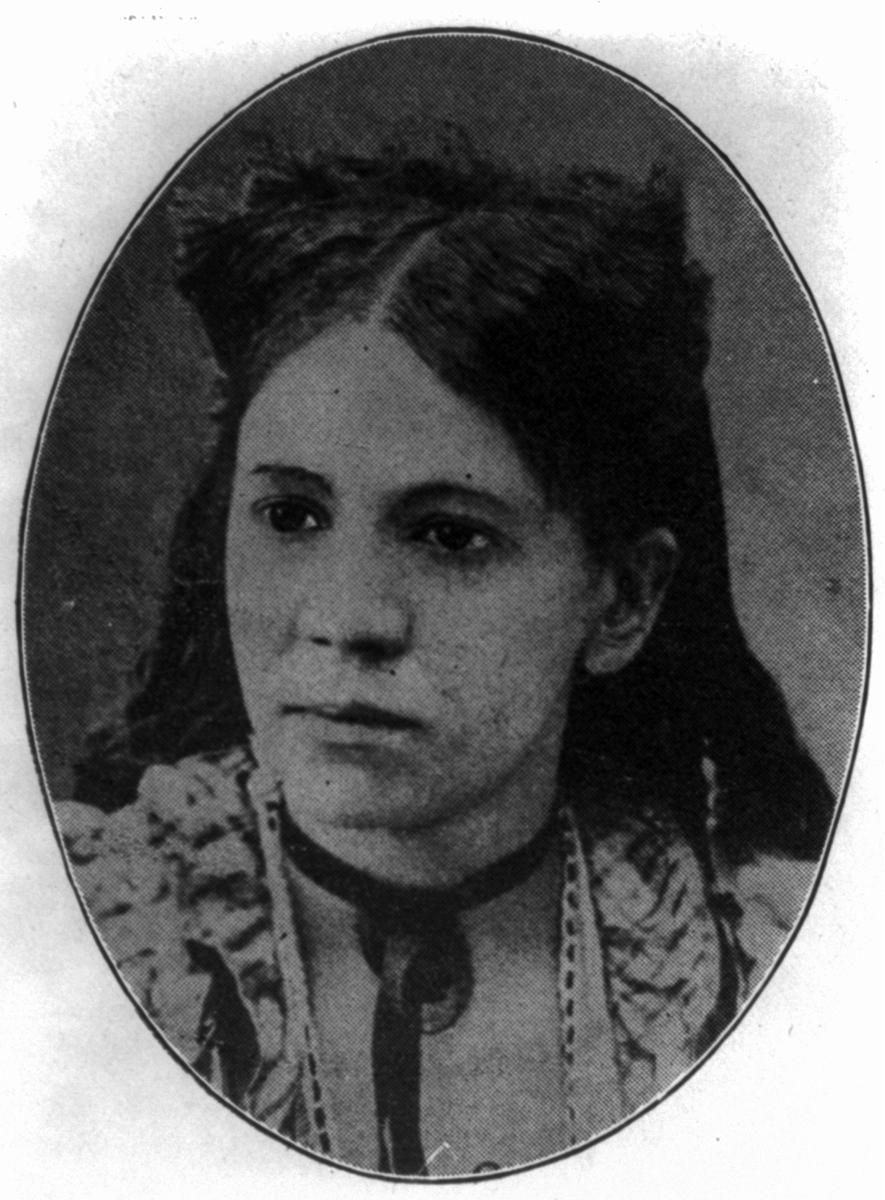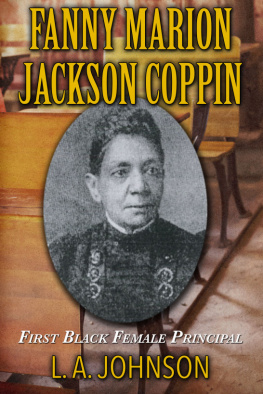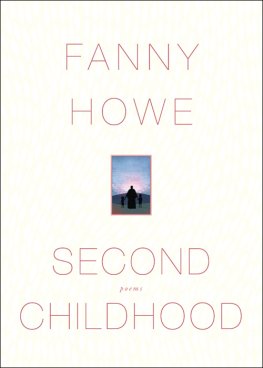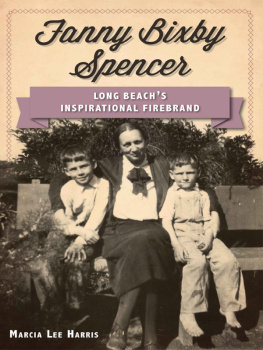Fanny Marion JacksonCoppin
First Black FemalePrincipal
By L. A. Johnson
Fanny Marion JacksonCoppin
First Black FemalePrincipal
Published by L.A.Johnson
SmashwordsEdition
Copyright 2017 L. A.Johnson
Smashwords Edition,License Notes
This ebook is licensed for yourpersonal enjoyment only. This ebook may not be re-sold
or given away to other people. If youwould like to share this book with another person,
please purchase an additional copy foreach recipient. If youre reading this book and did
not purchase it, or it was notpurchased for your use only, then please return to your
favorite ebook retailer and purchaseyour own copy. Thank you for respecting the hard
work of this author.

Washington D. C.
No one would have guessedthat she was destined to become one of the first Black Americanwomen to graduate from an American college or university. Nor wouldanyone have imagined that she would become the first American womanof African descent to become headmistress, or principal, of aschool. Surely the girl herself, Fanny Marion, never entertainedsuch thoughts during her prepubescent years. For, born a slave inWashington D.C. sometime in the year 1836, Fanny spent herformative years not day dreaming about fame and glory, but ratherenduring the extreme hardships and poverty of slavery and fightingto survive chronic attacks of chills, fever, headaches, and shakingague. She suffered from a periodic malarial fever marked byintermittent chills and sweating.
During her infancy andearly childhood, Fanny was often sent to stay with her grandmother,whom she called Manny. Although her visits to Mammys littleone-room cabin were ostensibly for the purpose of keeping hergrandmother company, they also provided the essential childcarethat Lucy, Fannys mother, needed in order to work. Fannys mostvivid memories of her visits with Mammy were the long prayers thather grandmother prayed every night before they would go to bed inthe loft where the slept. Invariably, Mammy would ask God to blessher offspring. Fanny remembered these prayers because she alwayswondered what the word offspring meant.
On two occasions, Fannysuffered severe burns while under the care of her grandmother. Thefirst burn was sustained during a party occasioned by herchristening. In an apparent effort to quiet or still the child forthe length of the party, Fanny had been tied to a chair and placedtoo near a stove. Heat given off by the stove was so I intense thatit caused the skin from the side of her leg closest to the fire topeel off when her stocking was removed. The second burn occurredwhen a coal of fire from Mammys pipe fell, undetected, into herbosom and burned itself deep into her flesh. Since she was tooyoung to talk, the burn on her chest was not discovered until hermother undressed her at night.
So, you see, far fromthinking that good fortune would someday smile on her, FannyJackson had little reason to believe that she would ever beanything but a lowly slave child of a slave mother, destined tolive as a slave in Washington D.C. all of her life. But this wasnot to be.
Two women shall begrinding at the mill; the one shall be taken, and the otherleft. Matthew 24:41. So it was withFannys mother, Lucy, and her aunt,
Sarah Orr Clark. Sarah, along with three of her siblings, waspurchased by their father after he had first saved enough money tobuy his own freedom. However, their father refused to buy Lucy dueto the fact that she had given birth to a child.
According to Fanny, heraunt Sarah took a liking to her. Indeed, she liked the child sowell that working at $6.00 a month, she saved $125.00 and boughtFannys freedom. After purchasing her nieces freedom, Sarah senther to New Bedford, Massachusetts, to live with another of heraunts. She had promised not only to secure the child a job for herroom and board, but also to see that she would receive a littleeducation. For her act of kindness, Fanny was forever grateful toher Aunt Sarah.
Newport, RhodeIsland
At a time in life when mostyoungsters are preoccupied with spending money, Fanny Jackson wasbusy trying to earn it. Because legal restrictions, socialattitudes, and poverty had made it practically impossible for herto go to school, public or private; the young girl soughtemployment in an area that required neither education nor formallytaught skills, namely, domestic services. Her efforts to findsuitable employment were rewarded when she was hired at the age of14 to work in the household of Mr. and Mrs. George H, Calvert inNewport, Rhode Island. Although this was not her first job, it wasprobably one of the most important. For unlike her previouspositions, which allowed time for only sporadic schooling, Fannywas allotted one hour every other day at the Calverts to takeprivate lessons in the afternoon from a Mrs. Little. Later, Fannyattended the Newport Public Colored School for a few months. Theteacher of that school was a Mrs. Gavitt.
Fanny described George H.Calvert as a perfect gentleman and an able writer. Calvert was agreat grandson of the settler of Maryland, Lord Baltimore. Hiswife, Elizabeth Stuart, was a descendant of Mary, Queen of Scots.Because the Calverts had no children, a bond of mutual love soonformed between Fanny and Mrs. Calvert. In fact, it was reportedthat Fannys relationship to Mrs. Calvert was in many ways similarto that of a daughter. For instance, she regularly went with Mrs.Calvert to bathe in the ocean and to drive in the carriage.Further, Mrs. Calvert taught Fanny to sew beautifully, to darn, andto take care of laces.
Fanny Marion was a hardworker. George Calvert could see that, and he was pleased to havesuch an industrious servant. Mr. Calvert, likewise, could see thatFanny had an intense desire to acquire a formal education. It wastoward this end that she was accustomed to save a portion of herearnings. Wishing to help her all that he could, George Calvertgraciously allowed Fanny to take piano lessons, a skill at whichshe became adept enough to play the organ in the Union Church. Healso allowed her time to attend school and study. For six years,Fanny worked mornings and evenings, studied at night, and attendedschool between her morning and evening household duties. Thus itwas that she laid the academic foundation and saved the requiredsum of money that allowed her, upon taking leave of the Calverthousehold, to complete a course o study at Rhode Island StateNormal School.
Fanny Marion JacksonsEducation
The Normal School trainingthat she received did not quench Fannys thirst for knowledge.Indeed, Fanny later stated that having finished the course ofstudy, she felt that she had just begun to learn. At the NormalSchool, then located at Bristol, Rhode Island, she embraced herdesire to become a teacher and marveled that teaching could be sointeresting. So, she decided that she wanted to be the best teacherpossible. Having realized herself that education is the key tofreedom, she longed to help others escape the cruel chains ofbondage, ignorance, and poverty. Therefore, in 1860, she enteredOberlin College, then the only college in the United States thatadmitted colored students.
Upon entering Oberlin,Fanny boarded in the Ladies Hall. However, her health began todeteriorate due, according to her, to the lack of variety in thefood. While the food may have contributed to her poor health,another causative factor may have been her propensity to haveshaking ague every fall and spring in Washington. In any event, itwas to this malady that Fanny attributed her thinness. As a matterof fact, she wrote in her autobiography that she used often to tellher aunt that if she bought her according to her weight, shecertainly made a very poor bargain as she was not only as slim as amatch, but, as the Irishman said, she was as slim as twomatches.
Next page












